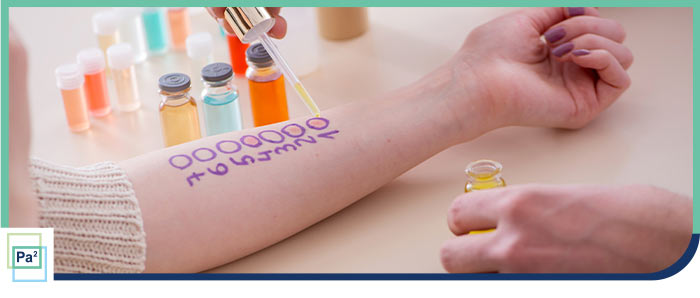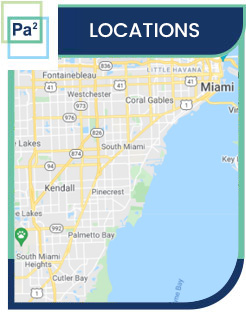How Much Do Allergy Shots Cost?
At Piniella Asthma + Allergy, the cost of allergy shots varies based on factors such as the type of allergy and the treatment schedule. On average, allergy shots range from $1,000 to $4,000 per year approximately (Please note this is an approximate cost, for exact pricing please reach out to us). It’s essential to consult with Dr. Carlos J. Piniella, our board-certified allergist, to receive a personalized treatment plan and accurate cost estimate tailored to your specific needs. Contact us today to book an appointment online! We have convenient locations to serve you in Coral Gables, FL and Palmetto Bay, FL!


Table of Contents:
How do allergy shots work?
How do you prepare for an allergy shot?
Are allergy shots effective?
How much do allergy shots cost?
Who is a good candidate for allergy shots?
Allergy shots, or immunotherapy, is a long-term treatment method that is effective for various conditions, including allergic rhinitis, allergic asthma, conjunctivitis, and allergies to pollens, dust mites, pet dander, bee venom, and stinging insects.
Immunotherapy comprises two phases: the build-up phase and the maintenance phase. The build-up phase involves weekly allergy shots for a few months until a maintenance dose is reached. Once this dose is achieved, the frequency of allergy shots decreases to once or twice a month during the maintenance phase. Depending on your specific allergies and your body’s response to the treatment, this maintenance phase may continue for several years.
Immunotherapy modifies the immune system’s response to allergens. It increases the production of immunoglobulin G (IgG), an antibody that prevents the allergen from triggering an allergic reaction and reduces the production of immunoglobulin E (IgE), which is primarily responsible for allergic reactions.
Before initiating immunotherapy, allergy testing is required to identify the specific allergen causing the symptoms and to assess your overall health to determine if immunotherapy is the right approach for you. It’s essential to remember that while allergy shots can significantly reduce allergic symptoms, they do not cure allergies.
Making adequate preparations can assist ensure a safe and effective experience.
Before Your Appointment:
• Consultation: Discuss your allergy history, current medications, and any potential concerns.
• Fasting: It’s important to have eaten before your appointment to prevent side effects such as dizziness or fainting unless instructed otherwise.
• Medications: Inform your healthcare provider about any medications you are taking, as some may interfere with the shot’s effectiveness. Continue taking your regular allergy medications unless advised otherwise, as these can help to manage any symptoms you may experience.
• Avoid alcohol and strenuous activity: In the 24 hours before your allergy shot, avoid consuming alcohol and strenuous physical activity, as these can increase your risk of a severe reaction.
At the Clinic:
• Injection site: Choose a site on your upper arm or thigh that is free of any skin conditions or tattoos.
• Observation period: After the injection, you will be observed for 30-60 minutes to monitor for any immediate reactions.
• Possible side effects: Inform your healthcare provider if you experience any discomfort, redness, swelling, or other symptoms at the injection site.
After Your Appointment:
• Avoid strenuous activity: Restrict any strenuous physical activities for 24-48 hours after the shot. This helps your body to adjust to the allergens.
• Monitor symptoms: Pay extra attention to any suspicious changes in your allergy symptoms and report them promptly.
The effectiveness of allergy shots has been substantiated through extensive clinical practice and numerous studies. While individual responses may differ, research indicates that allergy shots can greatly alleviate symptoms in as many as 80-90% of patients. Many individuals who receive this form of treatment report a significant reduction in the severity of their allergy symptoms, and in some cases, a complete cessation of symptoms over time.
Beyond reducing allergy symptoms, allergy shots can offer long-lasting effects that can last for years or even a lifetime, providing ongoing symptom relief. This treatment can improve the quality of life by reducing allergy symptoms and allowing patients to participate more fully in daily activities. Furthermore, allergy shots can help patients reduce their reliance on allergy medications, thereby reducing potential side effects and costs.
However, allergy shots may not be suitable for everyone and are generally not recommended for those with severe asthma, those who take certain medications, or those with heart conditions. Pregnant women are also advised to wait until after pregnancy to start this treatment.
The cost of allergy shots is not one-size-fits-all and can vary considerably.
• Type of Allergy and Number of Shots: The type and severity of your allergy can determine the type of shots you require. Different allergies necessitate different types of shots, which can have varying costs. Furthermore, the number of shots required for an effective treatment can alter the overall cost.
• Administration Frequency and Provider: Shots can be administered at regular intervals, such as weekly or monthly, and the frequency of these injections also impacts the overall cost. During the buildup phase, allergy shots are administered to the patient one to three times a week, with each visit costing around $20 to $100. During the maintenance phase, you may need to visit the office every two to four weeks, and each visit may cost around $20 to $50.
• Insurance Coverage and Additional Expenses: Some health insurance plans cover a portion or all of the costs associated with allergy shots. Before committing to allergy shots, it’s essential to assess your insurance coverage. Additional costs to consider include allergy testing before starting the immunotherapy, or for the allergen extracts used in the shots.
Patients who frequently experience severe allergic reactions to various allergens like pollen, pet dander, dust mites, or mold, and those who do not find relief from medications or avoidance strategies, might find these shots beneficial.
The ideal candidates for allergy shots typically meet the following criteria:
• Persistent or severe allergies: Individuals experience persistently bothersome symptoms, such as sneezing, runny nose, itching, hives, or asthma attacks, despite taking antihistamines or other allergy medications.
• Allergens are well-defined and difficult to avoid: The shots are most effective when the specific allergens causing the allergic reactions have been identified, typically through allergy testing. They are especially beneficial for those allergic to substances that are hard to avoid, like dust mites, mold, pet dander, or pollen.
• Side effects from allergy medications or desire to reduce long-term use: Patients who experience side effects from allergy medications or who wish to reduce long-term use of these drugs might also be suitable candidates for allergy shots.
• Good overall health: Allergy shots are generally recommended for individuals with good overall health. However, certain medical conditions, such as severe asthma or heart disease, might make allergy shots unsuitable.
Not all types of allergies can be treated with allergy shots. Food allergies and certain types of drug allergies are typically not managed with this treatment. Also, individuals who have experienced severe allergic reactions known as anaphylaxis should not undergo allergy shots. At the Piniella Asthma + Allergy, Dr. Carlos J. Piniella, a board-certified allergist, offers a comprehensive range of services to help patients manage and control their allergies and asthma. We serve patients from Coral Gables FL, Palmetto Bay FL, Westchester FL, Brownsville FL, Kendall FL, Pinecrest FL, Richmond West FL, and the surrounding areas!

Additional Services You May Need
▸ Asthma
▸ Allergy Testing
▸ Food Allergies
▸ Immunotherapy
▸ Patch Testing
▸ Allergy Treatment
▸ Pediatric Asthma Specialist
▸ Pediatric Allergist
▸ Insect Bite Allergy
▸ Drug Allergy
▸ Seasonal Allergies
▸ Skin Allergy

Additional Services You May Need
▸ Asthma
▸ Allergy Testing
▸ Food Allergies
▸ Immunotherapy
▸ Patch Testing
▸ Allergy Treatment
▸ Pediatric Asthma Specialist
▸ Pediatric Allergist
▸ Insect Bite Allergy
▸ Drug Allergy
▸ Seasonal Allergies
▸ Skin Allergy


